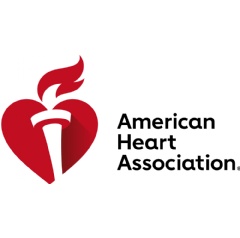Arsenic in Drinking Water May Change Heart Structure
Circulation: Cardiovascular Imaging Journal Report
Study Highlight:
- Among young adults, drinking water contaminated with arsenic may lead to structural changes in the heart that raise their risk of heart disease.
Drinking water that is contaminated with arsenic may lead to thickening of the heart’s main pumping chamber in young adults, a structural change that increases the risk for future heart problems, according to new research in Circulation: Cardiovascular Imaging, an American Heart Association journal.
“People drinking water from private wells, which are not regulated, need to be aware that arsenic may increase the risk for cardiovascular disease. Testing those wells is a critical first step to take action and prevent exposure,” said Gernot Pichler, M.D., Ph.D., M.Sc., lead author of the study and medical specialist for Internal Medicine, Department of Cardiology at Hospital Hietzing/Heart Center Clinic Floridsdorf in Vienna, Austria, scientific collaborator at INCLIVA Health Research Institute in Valencia, Spain, and a visitor scholar in the Department of Environmental Health Sciences at Columbia University in New York City.
People are most frequently exposed to arsenic, a toxic metalloid, through drinking water in areas where groundwater is contaminated, including many American Indian tribal communities and other rural and suburban communities in the United States. Previously, several studies have shown that arsenic exposure raises the risk of heart disease and its risk factors, including high blood pressure and diabetes. This is the first study to review the question in young American Indians in Oklahoma, Arizona and North and South Dakota.
Here, researchers reviewed data from the Strong Heart Family Study, a study evaluating cardiovascular risk factors among American Indians. Arsenic exposure was measured in urine samples from 1,337 adults (average age 30.7 years, 61% female) and the size, shape and function of their hearts were assessed using ultrasound (echocardiography). None of the participants had diabetes or heart disease at the start of the five-year study.
Overall, arsenic exposure was higher than in the general United States population, but lower than that found in other studies conducted in Mexico and Bangladesh. With a two-fold increase in arsenic in the urine, the researchers found:
- 47% greater chance of thickening of the heart’s main pumping chamber (left ventricle) in the group as a whole; and
- 58% greater chance of thickening of the left ventricle in participants with increased or high blood pressure (blood pressure at least 120/80 mm Hg or using pressure-lowering medication)
“The stronger association in subjects with elevated blood pressure suggests that individuals with pre-clinical heart disease might be more prone to the toxic effects of arsenic on the heart,” Pichler said.
The study is limited by having only one measure of arsenic exposure, and by the lack of long-term follow-up of the participants. Although this study was performed in tribal populations in the north, central and southwestern United States, the results are likely to be generalizable to millions of people in other rural locations exposed to low or moderate levels of arsenic in their water, according to Pichler.
“The study raises the question of whether the changes in heart structure are reversible if exposure is reduced. Some changes have occurred in water sources in the study communities, and it will be important to check the potential health impact of reducing arsenic exposure,” Pichler said.
“Observational studies can stimulate future research on genetic, environmental and clinical factors to shed light on the relationship between arsenic and cardiovascular disease,” said editorial author, Rajiv Chowdhury, M.B.B.S., Ph.D., Cardiovascular Epidemiology Unit, Department of Public Health and Primary Care, University of Cambridge, United Kingdom “These studies are important since cardiovascular disease remains the single leading cause of adult premature death worldwide and millions of individuals globally are exposed to arsenic and other metal contaminants.”
Co-authors are Maria Grau-Perez, M.Sc.; Maria Tellez-Plaza, M.D., Ph.D.; Jason G. Umans, M.D., Ph.D.; Lyle G. Best, M.D.; Shelley Cole, Ph.D.; Walter Goessler, Ph.D.; Kevin A. Francesconi, Ph.D.; Jonathan Newman, M.D., M.P.H.; Josep Redon, M.D., Ph.D.; Richard B. Devereux, M.D. and Ana Navas-Acien, M.D., Ph.D. Author disclosures are on the manuscript.
Editorial co-author is Kim van Daalen, B.Sc., M.Phil.
The National Institute of Environmental Health Sciences and the National Heart, Lung, and Blood Institute funded the study.
Additional Resources:
- Available multimedia is on right column of release link - https://newsroom.heart.org/news/arsenic-in-drinking-water-may-change-heart-structure?preview=c70597d10a391db4538b5a23ad0f2df6
- After May 7, view the manuscript and editorial online.
- Add heart.org or other AHA/ASA resource links if needed.
- Follow AHA/ASA news on Twitter @HeartNews
###
Statements and conclusions of study authors published in American Heart Association scientific journals are solely those of the study authors and do not necessarily reflect the association’s policy or position. The association makes no representation or guarantee as to their accuracy or reliability. The association receives funding primarily from individuals; foundations and corporations (including pharmaceutical, device manufacturers and other companies) also make donations and fund specific association programs and events. The association has strict policies to prevent these relationships from influencing the science content. Revenues from pharmaceutical and device corporations and health insurance providers are available at https://www.heart.org/en/about-us/aha-financial-information.
About the American Heart Association
The American Heart Association is a leading force for a world of longer, healthier lives. With nearly a century of lifesaving work, the Dallas-based association is dedicated to ensuring equitable health for all. We are a trustworthy source empowering people to improve their heart health, brain health and well-being. We collaborate with numerous organizations and millions of volunteers to fund innovative research, advocate for stronger public health policies, and share lifesaving resources and information. Connect with us on heart.org, Facebook, Twitter or by calling 1-800-AHA-USA1.
For Media Inquiries and AHA/ASA Expert Perspective: 214-706-1173
Karen Astle: 214-706-1392; karen.astle@heart.org
For Public Inquiries: 1-800-AHA-USA1 (242-8721)
( Press Release Image: https://photos.webwire.com/prmedia/5/240561/240561-1.jpg )
WebWireID240561
This news content was configured by WebWire editorial staff. Linking is permitted.
News Release Distribution and Press Release Distribution Services Provided by WebWire.
